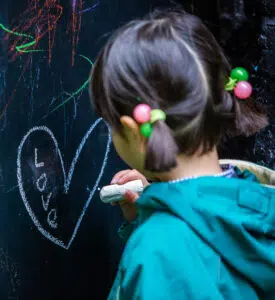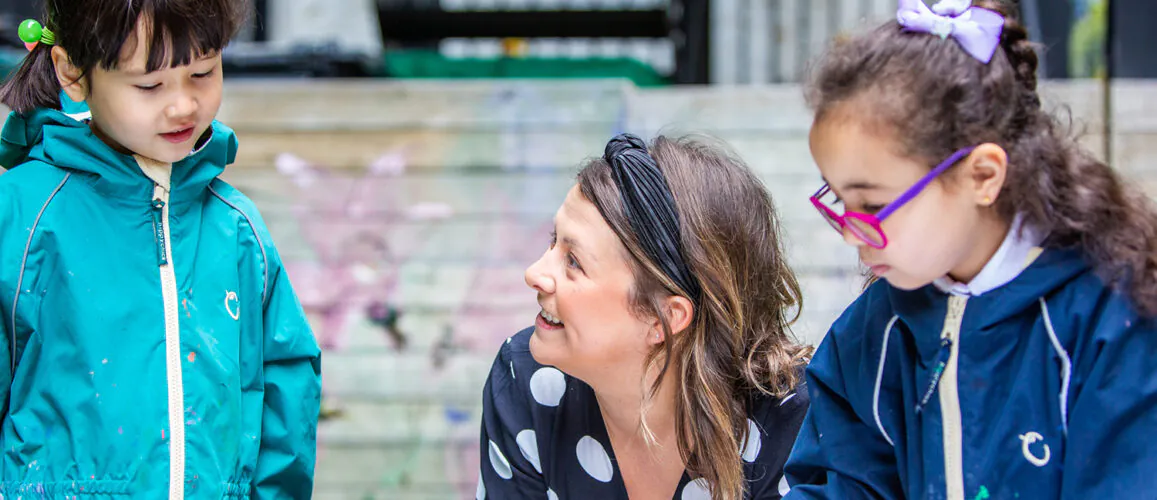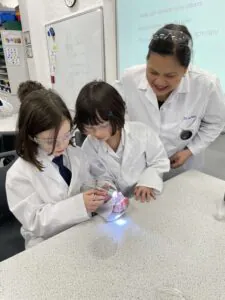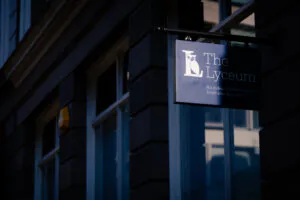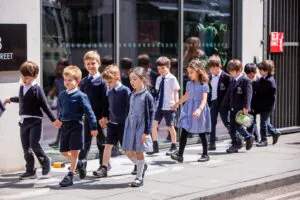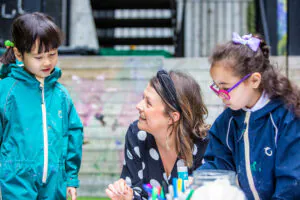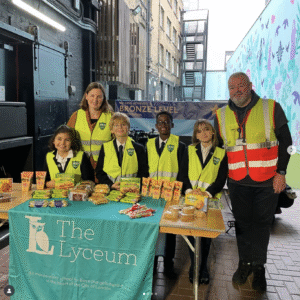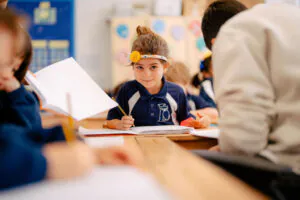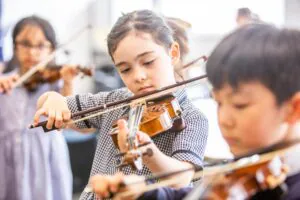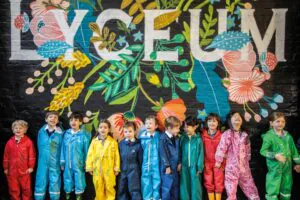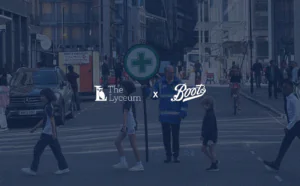Curriculum for reception in the UK
Choosing the right school for your child often comes with many questions, especially about the reception curriculum. Parents commonly ask: What does a Reception class curriculum look like? How is learning structured for young children? How do schools balance play and academic development? Reception is a crucial stage in a child’s education, forming part of the Early Years Foundation Stage (EYFS) and laying the foundation for literacy, numeracy, social skills, and emotional wellbeing. A well-designed Reception curriculum nurtures curiosity, confidence, and independence while ensuring children feel happy and safe in their first school environment.
At The Lyceum School, the Reception class curriculum is designed with these priorities in mind. The school combines structured learning with play-based exploration, enriching experiences, and a strong focus on personal development, providing children with a smooth and engaging start to school life.
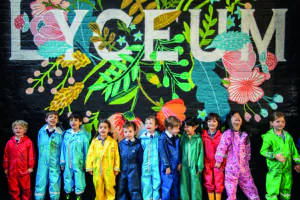
Key areas of learning in reception
The Reception curriculum at The Lyceum covers seven core areas:
- Personal, Social and Emotional Development (PSED): Supporting self-awareness, empathy, and positive relationships.
- Physical Development: Enhancing coordination, movement, and healthy habits.
- Communication and Language: Developing listening, speaking, and comprehension skills.
- Literacy: Introducing phonics, reading, and writing through stories and practical exercises.
- Mathematics: Exploring numbers, shapes, measurement, and problem-solving.
- Understanding the World: Encouraging curiosity about the environment, people, technology, and cultures.
- Expressive Arts and Design: Stimulating creativity through art, music, dance, and imaginative play.
First Days: a smooth transition
Teaching staff greet pupils and parents at drop-off every day, creating a welcoming start to the school day. This allows any messages from home to be shared directly with the team. Collection time at the end of the day also gives parents a chance to catch up with staff, or to arrange a ‘touch base’ meeting if more time is needed. Starting school can be an emotional experience for both children and parents, and the team at The Lyceum is always on hand to provide reassurance and comfort.
Very quickly, most pupil settle happily into new routines. Reception children are encouraged to develop independence from the start. They learn to carry their own bags, unpack, hang coats and hats, remember what to bring each day, and understand when to wear their PE kit or full uniform.
Child-initiated play
Play-based education lies at the heart of the Reception curriculum. Children learn key skills naturally through imaginative and creative lessons, without feeling pressure. At The Lyceum, the distinction between play and learning is blurred, making education enjoyable and fostering a lifelong love of learning.
Reception pupils follow a slightly more structured day than in Nursery. Mornings include three lessons, with a play/snack break after the first. After lunch and outdoor play, afternoons feature topic-based lessons, structured play, or park visits. The curriculum is further enriched with weekly Spanish, music, PE/dance, and yoga lessons. The dedicated team tailors learning to each child’s interests and needs. Pupils are not formally grouped or labelled, but the curriculum is subtly differentiated to challenge them appropriately.
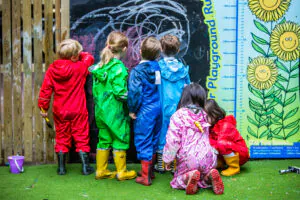
Literacy in reception
Literacy, or Phonics, is a key part of the Reception curriculum. Phonics is a systematic approach to early reading, teaching children to match letters with their corresponding sounds. Children begin with the most common sounds of letters and progress to combining letters to form short words. Digraphs and trigraphs, where two or three letters make a new sound, are introduced once pupils are ready.
Pupils are encouraged to write using the sounds they know. Tricky words, which are not phonetic, are taught separately to ensure children can access reading materials and use them in writing. Workshops for parents in Phonics, early Maths, and Parenting are offered, and staff provide regular guidance to support children’s learning at home.
Numeracy
Mathematics is taught in a fun and engaging way. By the end of Reception, pupils can explain their reasoning as well as find answers. Learning progresses from number recognition to addition, subtraction, doubling, halving, and problem-solving. Shape, position, movement, time, and measurement are also explored, embedding correct mathematical language and preparing pupils for “Singapore Maths No Problem” in Year One.
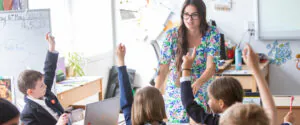
Mealtimes
Snack and lunch are supervised by the EYFS team. Pupils eat at outdoor snack tables in the morning and in the canteen at lunchtime. All dietary requirements are catered for, with healthy meals provided and themed meals linked to learning. Parents are asked to provide two healthy snacks each day, ensuring all snacks are nut-free and appropriate for safety.
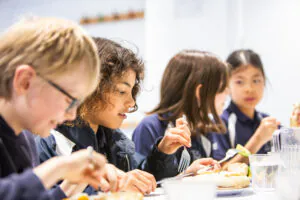
Outdoor learning
The Lyceum makes full use of its location to enhance learning. Reception pupils visit local fire stations, art galleries, parks, and the Lyceum Garden at Spitalfields City Farm, where they grow plants, fruit, and vegetables and care for animals. Visitors from the community, including police officers and professionals linked to class topics, provide workshops and answer children’s questions.
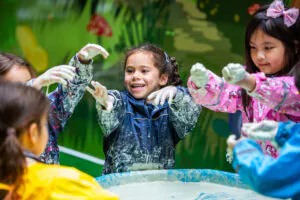
Emotional wellbeing
A calm, happy atmosphere is a hallmark of The Lyceum. In Reception, pupils’ emotional wellbeing is a priority. Each class has a visual feelings chart to allow children to express their emotions, and Circle Time sessions explore all aspects of personal, social, and emotional development. Pupils are guided to develop kindness, resilience, and a growth mindset, supported by a dedicated team at every stage of their learning journey.
About The Lyceum School
The Lyceum School is a place where every pupil is cherished, known, and celebrated. Situated in the vibrant heart of the City of London, our school offers a nurturing, co-educational environment founded on the pillars of kindness, creativity, confidence, and community. We inspire a deep love of learning through an engaging, topic-based curriculum using London as our classroom, enriched by STEAM, language, arts, and wellbeing-focused initiatives like mindfulness and yoga.
With small class sizes, high staff-to-pupil ratios, and a strong pastoral framework, including our House System and accessible pastoral support, we prioritise each pupil’s personal growth just as much as academic success.
Located near Old Street, Liverpool Street, Moorgate and Shoreditch stations, our modern, light-filled five-storey building with specialist art, science, STEAM studios and outdoor space provides a dynamic setting that’s seamlessly integrated with London’s rich cultural resources. At The Lyceum, learning comes alive every day, preparing children to become confident, compassionate, and curious individuals ready to contribute positively to the world.
Attend our Open Day
Curious about life at The Lyceum? Come see it for yourself. Join one of our Open Days to explore our modern building, meet our lovely staff and feel the energy of our school community. You’ll get a real sense of what makes our independent co-ed school so special.
Can’t make it to an Open Day? No problem. Just contact our team to book a private tour.
📧 Email: registrar@lyceumschool.co.uk 📞 Phone: +44 (0)20 7247 1588
Final thoughts
The Reception class curriculum at The Lyceum School blends structured learning, child-led play, creative enrichment, and emotional support. By focusing on literacy, numeracy, independence, and wellbeing, the school provides a nurturing and stimulating environment where children can thrive. The curriculum for reception is brought to life through the school’s personalised approach, ensuring every child enjoys their first steps into formal education while building confidence, curiosity, and a love of learning.
